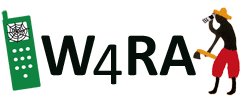In our modern society the increasing digitization of so many aspects of life holds a risk of social exclusion of various groups. People who find difficulties in accessing online information and navigating the Web are heavily disadvantaged, when information from the government, taxes, health services, legal information etc. is increasingly reachable as digital service only. In the Netherlands there is an important group at risk of social and digital exclusion: people with low literacy skills. Aware of the size and seriousness of this problem, the Dutch government is looking for solutions and commissioning studies how to digitally serve low literates. Research is being done how to design human-computer interfaces such that they are understandable for people with low literacy skills. Despite many efforts, there is still a lack of knowledge and best practices how this can be optimized. In search for innovative solutions, Derek van den Nieuwenhuijzen is investigating the usefulness of virtual agents in guiding low literate people how to complete online digital forms. Read more: PDF.
AUTHOR
Anna Bon
Member of the W4RA team; Centre for International Cooperation, Vrije Universiteit Amsterdam, The Netherlands.
104 posts
You may also like
“Sustainability assessment and ethical considerations are not commonly included as subtasks in the development of digital systems and services and receive less […]
From 20 to 24 June 2016, the W4RA team was in Gourcy, Burkina Faso a facilitated a new ICT4D requirements engineering workshop with […]
For several decades ICT4D practitioners over the world — funded by international development donor agencies or private funds — have tried to […]
Proceedings of the 5th International Symposium “Perspectives on ICT4D” now published at http://ceur-ws.org/Vol-2120/ Co-located with 10th ACM Web Science Conference (WebSci’18) Amsterdam, […]




